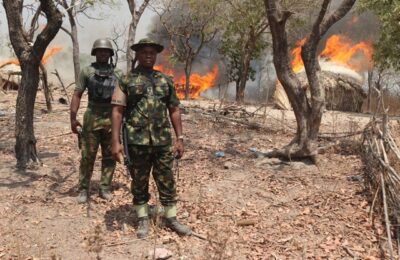The tragedy is not merely being out of school — the real disaster is returning halfway through the term and pretending that learning can be microwaved. From the dust of Ibaji’s riverine schools emerges a haunting paradox: students who spend half the term away from class only to return with polished shoes and smartphone confidence. In those few weeks before exams, many act as though education is something to cram, not something to grow in.
Gone are the days when Ibaji students were feared in debates, science fairs, and essay competitions. The 1980s, 90s, and even the early 2020s produced thinkers who could lead both in class and in conscience. Today, some students resume during the mid-term break — yes, mid-term — and still dream of passing without effort. They wear designer slippers but cannot spell “government.” They flaunt iPhones yet stumble over simple tenses.
The lives of such students are powered by data, but their minds are disconnected from knowledge. Like digital mirrors, they reflect everything but absorb nothing. As Malala Yousafzai rightly said, “One child, one teacher, one book, one pen can change the world.” But when the child is absent for half the term, the world loses a future.
Worse still, society applauds them. Parents, desperate to keep up with trends, buy gadgets but ignore textbooks. Teachers, overwhelmed by salary delays and burnout, no longer chase ghosts. Communities normalize absence. Churches preach miracles but forget the miracle of discipline. And the government? It draws budgets without drawing real plans for these underserved zones. Ibaji is blessed with minds that can rule continents, yet cursed with a system that allows mediocrity to wear medals. The poet W.B. Yeats once said, “Education is not the filling of a pail, but the lighting of a fire.” But we have extinguished the match and now blame the wind.
Most school administrators will be blamed for allowing students to resume at such odd hours during the term. However, the greater burden lies with parents and the government for failing to implement policies that can end this ugly trend.
The burden of learning is no longer shouldered — it is shelved. The school calendar in Ibaji has become optional: a pick-and-drop system of half-hearted effort. Students who show up only weeks before exams are not just late — they are lost in time. They cheat, guess, and plead their way through assessments. This is not education; it is erosion. You cannot build castles of greatness on the sand of inconsistency.
As John Dewey emphasized, “If we teach today’s students as we taught yesterday’s, we rob them of tomorrow.” But what happens when we don’t teach at all, or when the students don’t show up at all? The result is students having nine distinctions or credits in all subjects, yet unable to speak or write correct English or solve a simple fraction.
We must confront this decay before it becomes destiny. School principals and proprietors cannot handle it alone, especially since such defaulters make up a significant portion of the school population. Any attempt to send them away could affect the school’s economy. The truth is: returning to school halfway through the term is worse than not attending at all. It mocks the system and masks the sickness. It feeds the illusion of progress while deepening the pit of ignorance. And ignorance is not just dangerous — it is deadly. A society cannot rise above the quality of its thinking youth.
As Nelson Mandela warned, “Education is the most powerful weapon which you can use to change the world.” But when that weapon is blunted by unseriousness, the world remains unchanged — and so it is with the average Kogite, especially the Igala youth, and most painfully, the Ibaji student.
Every Ibaji boy and girl holds their destiny in their own hands. The choice to change the narrative of late school resumption is yours. It is said, “The early bird catches the worm.” It is also said that a person who arrives at the market early gets a better place to do business. The reverse is the case for those who come late.
Let us rebuild the reputation of the Ibaji student. Let us raise boys and girls who speak like Wole Soyinka, write like Chinua Achebe, invent like Philip Emeagwali, lead like Dora Akunyili, build like Ngozi Okonjo-Iweala, and farm like the late Prof. Francis Idachaba.
The road to greatness starts not with magic, but with presence — showing up, staying up, and growing up in class. Education is a slow, steady flame — not a weekend bonfire. The earlier we return to this truth, the better for our children, our schools, and the future of Ibaji.
— Press Club, Chronicle International Schools, Inachalo, Idah L.G.A., Kogi State (07025892001)




